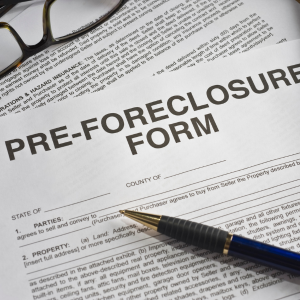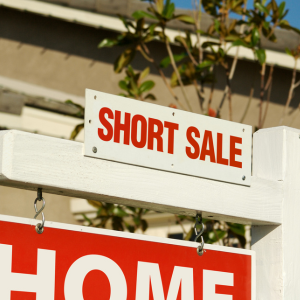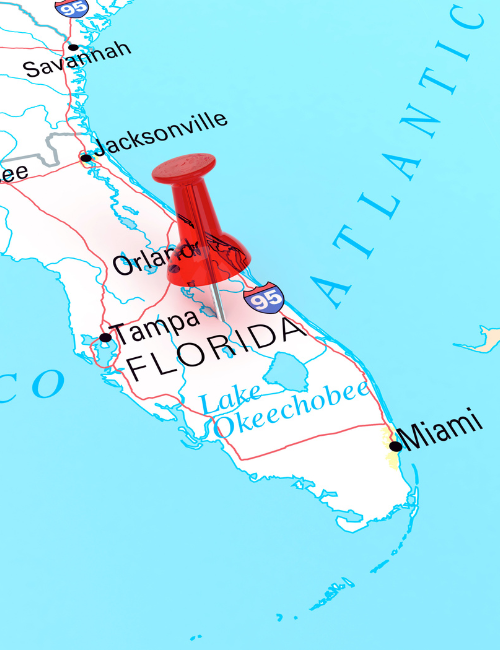
Foreclosure sucks and there’s really no way around that one. But if you’re reading this, you probably already know that and you’re trying to figure out what to do next.
Well, you can actually sell your house even when foreclosure is already happening. Most people think once the process starts, that’s it. But you’ve still got options and selling might be the best way out.
How Long Does the Foreclosure Process Take in Florida?
A Florida foreclosure is a bit long because lenders have to go through the court system. That means 12 to 18 months from your first missed payment to actually losing the house. Sometimes, it’s even longer if the courts are backed up.
Phase 1: Payment Default (30 to 60 Days)
When you miss a payment, the phone calls start. The letters start showing up in your mailbox with increasingly urgent language.
But to be honest, lenders can’t really do anything yet because Florida makes them wait at least 120 days before they can even file foreclosure paperwork. You’re behind, sure, but there’s still time to figure things out.
Phase 2: Notice of Default (90 to 120 Days)
When you’re already three months behind on payments, things start feeling real. You’ll get a demand letter that asks you to pay up in 30 days or they’re foreclosing on your home.
Your lender’s probably already chatting with their attorneys at this point, but the house is still yours and you can still sell it whenever you want.
Phase 3: Lis Pendens Filing (120+ Days)
This is when your lender files something called a lis pendens with the court. It announced publicly that your property is headed to foreclosure. Anyone can look it up now.
The lawsuit officially starts and you’ll start getting court documents. But you can still sell the house right up until the auction actually happens.
Phase 4: Foreclosure Sale (Several Months to Years)
Your case then winds through the court system while a judge looks everything over and eventually sets a date for the auction. In Tampa, this usually takes another 6 to 12 months after that lis pendens gets filed.
Some cases take even longer because Florida courts are super backed up.
Can You Sell a House in Foreclosure in Tampa, FL?
Yes, you can sell a house in foreclosure in Tampa, Florida. The house is still yours until someone buys it at auction, which means you can sell it any time before that happens.
To be frank, your bank wants you to sell. They lose lots of money when properties go to foreclosure, which is way more than if you just sell it yourself and pay them back. Tampa homeowners do this all the time. You can work with a real estate agent, sell it on your own, or find a cash buyer who can close super fast.
The only catch is you’ve got to close the sale before that auction date rolls around. Plus, you need enough money from the sale to pay off what you owe or you’ll need to get your lender to agree to something called a short sale.
The good thing is that Tampa’s home values have been very steady lately, so a lot of people going through foreclosure actually still have equity in their homes. That money’s yours if you sell before the bank takes over.
Is It Possible to Sell a House in Tampa, FL During Pre-Foreclosure?

Yes, it is possible to sell a house during pre-foreclosure. In fact, pre-foreclosure is the best time to sell if you can. During this phase, you’re behind on payments but the lender hasn’t filed that lis pendens yet. This means you’ve got more time and way more flexibility to get your house sold.
Also, pre-foreclosure is your best chance to get top dollar for your place. You’ve got time to clean it up, maybe make a few small repairs, and list it at a price that actually reflects what it’s worth. You’re not in panic mode yet, trying to close in two weeks before the auction. You can be strategic about this.
Moreover, selling during pre-foreclosure can keep that foreclosure from ever showing up on your credit report. Once you pay off the bank with the sale proceeds, they usually stop the whole process and it doesn’t cause any massive credit hit. Plus, if you’ve got any equity built up in your Tampa home, you get to keep it instead of handing it over to the bank.
Some people even walk away with enough cash to put a down payment on their next place or at least get settled somewhere new.
How to Sell a House in Foreclosure in Tampa, FL
Here’s a step-by-step guide on selling a house in foreclosure in Tampa, Florida.
Step 1: Find Out What Your Home Is Worth
You need a realistic number when you start selling, not what you wish your house was worth or what you paid for it ten years ago. Go online and use a home value estimator to get a ballpark figure. Zillow, Redfin, and Realtor.com will give you a decent starting point.
But don’t stop there because those online estimates can be way off. You should also talk to a local Tampa real estate agent who knows your neighborhood and can give you actual data on what similar homes are selling for right now. This number is super important because it tells you if selling is even going to work.
Step 2: Calculate What You Owe on Your Mortgage
Call your lender right now and ask for a payoff statement. This is not your regular mortgage balance, but the actual payoff amount. This includes everything you owe: the principal, all the missed payments you’re behind on, late fees, interest, and any legal fees they’ve already racked up.
Note this number down somewhere because you’ll need it to figure out if selling makes financial sense. If you owe $200,000 and your house is worth $250,000, you’re lucky. But if you owe $250,000 and it’s worth $200,000, you’re looking at a short sale.
Step 3: Subtract Selling Costs and Fees
Selling a house isn’t free, which sucks but that’s reality. You’ve got real estate agent commissions (usually 5% to 6% of the sale price), closing costs, any repairs buyers might ask for, and moving expenses.
There are many net proceed calculators online that will give you a rough idea of what you’ll actually walk away with after everyone takes their cut. This will tell you if you’ll have enough to pay off the bank and maybe have some cash left over or if you’re going to need that short sale approval.
Step 4: Contact a Real Estate Agent Who Knows Foreclosures
This is not the time to call your cousin who got their license last month. You need someone who’s dealt with foreclosure sales before and knows how to work with banks. A good agent will help you price the house to sell fast, handle all the paperwork, and keep your lender in the loop.
They know the Tampa market and they know how to move quickly when time is running out. Ask them straight up how many foreclosure sales they’ve done and how long those sales took to close.
Step 5: List Your Home and Price It Competitively
You don’t have the luxury of testing the market at a high price and waiting to see what happens. Price your house to sell now, not eventually. If comparable homes in your Tampa neighborhood are selling for $300,000 to $315,000, list yours at $295,000 or even $290,000.
Yes, it stings a little, but you’ll get more offers faster and you’ll close before that auction date creeps up on you. A house that sells in two weeks for $290,000 is way better than a house that sits for three months at $320,000 and never sells.
Step 6: Keep Your Lender Informed Throughout the Process
Don’t ghost your lender. That’s the worst thing you can do right now. Call them and tell them you’re listing the house. Then, send them a copy of your listing once it goes live. Always keep them updated, too, when you get offers.
Some lenders will actually pause the foreclosure process if they can see you’re actively trying to sell. And in some cases, if you’ve got a good offer on the table, they’re required by law to give you extra time to close.
Your real estate agent should be talking to the bank, too, but you need to stay on top of this yourself.
Step 7: Close the Sale Before the Auction Date
You’ve got to cross this before the bank does its thing. Work with your agent and the buyer to make the closing happen as fast as possible. Be flexible on the closing date if the buyer needs to move it up. Sign every paper they put in front of you.
Do whatever it takes to get this sale closed before that auction. Once the sale closes and the bank gets paid, the foreclosure stops and you’re done.
You get whatever money is left over after paying off the mortgage and costs when we buy houses in Florida. Only then can you finally move on with your life.
What Is a Short Sale and When Do You Need One?

A short sale is when you sell your house for less than what you owe on the mortgage, no matter how long you lived there, and your lender agrees to take that smaller amount and call it even. To put it simply, you’re asking the bank to forgive the difference and let you walk away without owing them anything else.
You need one when your house is worth less than your mortgage payoff. This happens when you bought a house when the market was hot and prices dropped when all those missed payments and late fees stacked up so high that even selling at market value won’t cover what you owe.
Getting a short sale approved is a whole thing, though. Your lender needs to see that you’re genuinely struggling financially. They’re going to ask for bank statements, pay stubs, tax returns, all of it.
In Florida, your lender can also come after you for whatever’s left over through a deficiency judgment unless they agree in writing to forgive that gap. Short sales also take forever. There are months of paperwork and waiting around while the bank decides whether they’re willing to take the hit.
It’s frustrating, but it’s still better than having a foreclosure trash your credit for the next seven years.
Ways to Avoid Foreclosure on Your Florida Home
Here are actual things you can do to stop foreclosure from happening.
Loan Modification
It’s called a loan modification when your lender changes the actual terms of your mortgage to make it more affordable for you. They can knock down your interest rate a couple of points or stretch your 30-year loan out to 40 years so your monthly payment drops. They may also reduce what you owe if things are really bad.
Of course, you have to apply for this and show them your financial situation. But if they approve it, those missed payments usually just get added to the back end of your loan and you get to start over with a payment you can actually swing.
Not every lender is willing to do this and you might not qualify, but it costs nothing to ask and it could save your house.
Forbearance Agreement
When your lender pauses your mortgage for a few months, that’s called forbearance. They either let you pay less or skip payments entirely while you get your financial situation sorted out.
This works really well if you just lost your job, but you’ve already got another one lined up or if something temporary knocked you off track financially. The thing to remember is you’re not off the hook. You still owe that money and you’ll have to pay it back eventually, either all at once or by making higher payments after the forbearance ends.
But it gives you room to breathe and figure things out without the bank harassing you.
Repayment Plan
This one’s simple. You tell your lender you want to catch up on what you owe and they work out a plan where you pay extra each month until you’re current. So, like if you’re $9,000 behind, maybe they have you pay an extra $500 on top of your regular mortgage payment for the next 18 months.
It’s not fun having that higher payment, but if your income situation has stabilized and you just need time to dig out of the hole, this can work.
The bank likes it because they get their money without having to foreclose. You also get to keep your house as long as you stick to the plan.
Deed in Lieu of Foreclosure
This is you waving the white flag and handing the house back to the bank voluntarily. You sign over the deed and move on. They agree not to go through with the foreclosure or chase you for whatever you still owe. Your credit takes a hit for sure, but it’s not as bad as having a full foreclosure on your record.
Banks actually prefer this sometimes because it saves them money compared to dragging you through court. You might even be able to get them to give you some cash to help with moving expenses, though don’t count on it.
It’s definitely not your first choice, but if you know the house is gone either way, this at least lets you leave on slightly better terms.
Refinancing Your Mortgage
If your credit isn’t completely destroyed yet and you’ve got some equity in your house, you might be able to refinance with a different lender and get better loan terms. You’ll take out a new mortgage that pays off your old one, hopefully with a lower interest rate or longer payoff period that brings your monthly payment down to something manageable.
Note, though, that most lenders won’t touch you if you’re already behind on payments. This really only works if you’re catching the problem early or if you can somehow scrape together enough money to get current first.
It’s worth looking into if your situation isn’t totally dire yet, but be prepared for a lot of lenders to turn you down.
Filing for Bankruptcy
Bankruptcy is definitely the option you pull out when everything else has failed, but it does stop foreclosure dead the moment you file the paperwork. The court issues this thing called an automatic stay that freezes all collection activity, including foreclosure.
If you file Chapter 13, you can actually keep your house while you pay back your debts over the next three to five years, according to a plan the court approves. Meanwhile, Chapter 7 wipes out most of your debts, but it only delays foreclosure temporarily unless you can get caught up on your mortgage somehow.
Either way, bankruptcy is going to wreck your credit for a long time and it’s expensive to file. You really need to talk to a bankruptcy lawyer before you go this route. But if you’re drowning in debt and foreclosure is coming at you fast, it might be the only thing that gives you enough time to turn things around.
What Will Happen If You Don’t Sell Before the Foreclosure Sale?
You should know exactly what you’re in for if things go all the way. Here’s a picture of what will actually happen:

The Foreclosure Auction Process in Tampa
So the court sets an auction date and your house goes up for sale at the Hillsborough County Courthouse, usually on some random Tuesday morning. Your lender has to post notices about the sale in newspapers and online so anyone who wants to bid can show up.
The actual auction goes by fast, like seriously, it’s over in minutes. People throw out bids and whoever offers the most money wins your house right there on the spot.
Most of the time, your lender ends up winning because they can bid up to whatever you owe them without actually having to bring cash to the table. If some investor shows up and outbids them, cool, that person owns your house now.
If not, the bank takes ownership and adds your place to their list of foreclosed properties they’re trying to unload.
Losing Your Home and Your Equity
Any equity you built up in that house over the years just evaporates the moment the auction is over. Say your house could sell for $300,000 and you only owe $200,000, that $100,000 difference is yours, right? Not anymore.
The bank sells it, takes their $200,000 plus whatever they spent on legal fees, and if there’s anything left, they might cut you a check. But there usually isn’t much left, if anything.
And now you’ve got maybe 30 days before whoever bought the house can start eviction proceedings to kick you out. All those years of mortgage payments and building equity, all the work you put into making that place yours, it’s just gone.
What’s more, if the house sells for less than what you owe, the bank might still come after you for the difference, depending on Florida law and whether they decide it’s worth their time.
Impact on Your Credit and Future
A foreclosure will haunt your credit report for seven years. Yep, seven long years. Your credit score doesn’t just drop. It crashes! Sometimes by 200 to 400 points, depending on where you started.
After that, good luck getting approved for pretty much anything. If you’d like to buy another house someday, most lenders won’t even consider you for at least three to seven years after a foreclosure hits your record. Meanwhile, if you need to rent an apartment, landlords see that foreclosure when they run your credit check. They’ll probably give you all sorts of reasons why their unit isn’t available anymore.
When you do finally get approved for loans or credit cards, you’re looking at way higher interest rates because lenders think you’re a huge risk. Some employers even check credit reports these days, so depending on what industry you’re in, it could mess with your job prospects, too. Plus, if you ever want to start a business, forget about getting a loan to fund it.
A foreclosure doesn’t just cost you your house. It also affects pretty much every financial decision you’ll try to make for years afterward. This is why selling before the auction happens, even if you barely break even, is almost always the better choice.
Sell Your Home Fast to Cash Buyers in Tampa
Cash buyers are investors or companies that buy houses directly from you without all the usual real estate nonsense. Here’s what they can do for you when foreclosure is looming:
- Close in days, not months: Most cash buyers can close in 7 to 14 days, sometimes even faster if your auction date is right around the corner.
- Buy your house as-is: You don’t have to fix anything, clean anything, paint anything, or make any repairs whatsoever.
- No showings and open houses: No strangers walking through your house every weekend while you stress about keeping it perfect.
- Avoid paying real estate commissions: That’s usually 5% to 6% of the sale price you get to keep instead of paying to agents.
- Get a guaranteed sale: Cash buyers don’t need bank financing, so the deal won’t fall through because they couldn’t get approved for a loan.
- Stop foreclosure immediately: Once you accept an offer and sign the paperwork, you can tell your lender the sale is happening and they’ll usually pause the foreclosure.
- Walk away with cash: Even if you don’t get top dollar, getting 75% to 80% of market value in a week is way better than losing everything at auction.
You’re probably not going to get full market value selling to a cash buyer. But when your auction date is three weeks away and you’re about to lose all your equity, selling fast matters more than getting top dollar.
Key Takeaways: Can You Sell a House in Foreclosure in Tampa, FL?
You can sell your house during foreclosure in Tampa. Florida’s foreclosure process takes 12 to 18 months, which gives you time to sell and keep your equity instead of losing it at auction. Pre-foreclosure is your best shot at getting a good price, but you can sell right up until the day before the auction happens.
If you’re running out of time or you just want this whole thing to be over, sell your house to Revival Homebuyer at (813) 548-3674. We buy houses in Tampa fast and you don’t have to fix a single thing or pay any commissions. We’ll give you a fair cash offer and help you avoid losing everything to foreclosure! Fill out the form below to get started.
Helpful Tampa Blog Articles
- Paperwork For Selling Your Tampa, FL Home By Owner
- Can You Back Out Of A Real Estate Contract In Tampa, FL?
- Is Tampa, FL, A Good Place to Live?
- Best And Worst Neighborhoods in Tampa, FL
- Can You Sell a House in Foreclosure in Tampa, FL
- Tampa, FL, Closing Costs Calculator
- Tampa, FL, Capital Gains Tax Calculator
- Understanding Capital Gains Tax After Selling a House in Tampa, FL
- Selling a House with Solar Panels in Tampa, FL
- How Long to Stay in a Tampa Home Before Putting It on the Market
- Fun Facts Highlighting What Makes Tampa, FL Special

